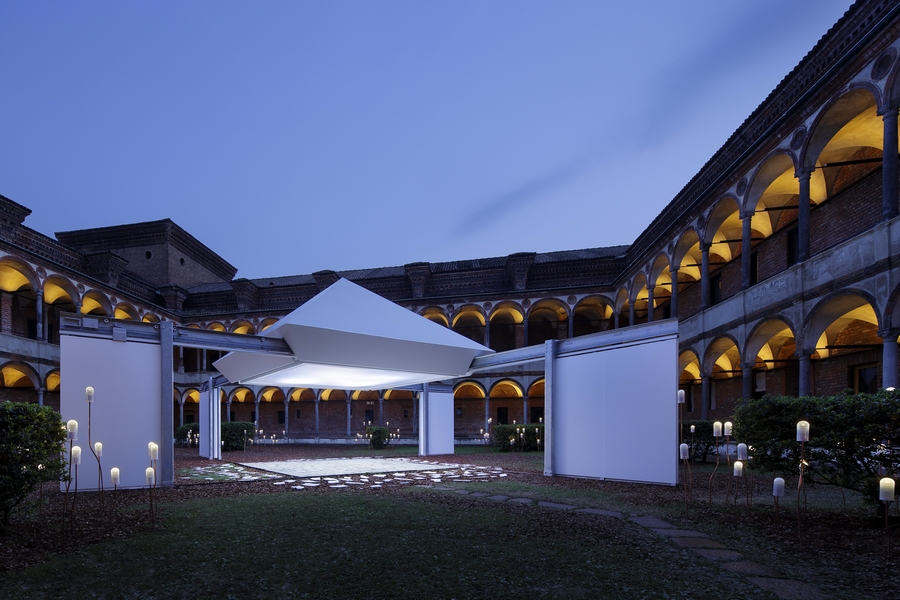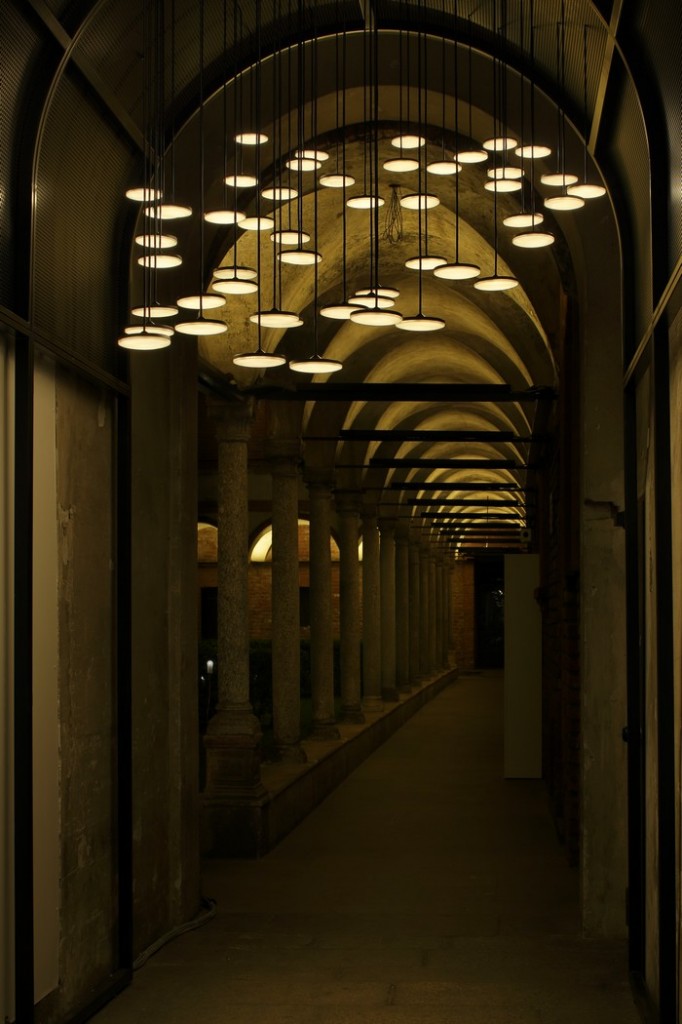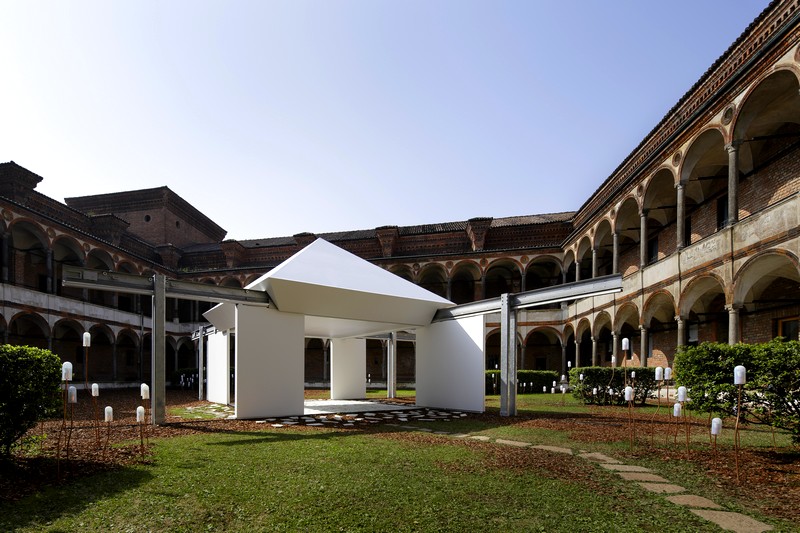Sliding Nature: a new relationship between people’s living environments and nature.
Japanese houses traditionally use “Fusuma” or “Shoji” paper sliding doors to take the gifts of nature into homes, such as pleasant breezes and soft sunlight. Thanks to the sliding doors, people can also enjoy the surrounding scenery. Thanks to the sliding doors, people can also enjoy the surrounding scenery.
At this year’s Salone del Mobile, one of the largest and most influential design exhibitions in the world, held in Milan, Panasonic proposed a new relationship between people’s living environments and nature. Designed by noted architects TORAFU ARCHITECTS, the “SLIDING NATURE” concept installation exhibited in the courtyard of the University of Milan, was a house shaped structure made with sliding doors. These sliding doors on all four sides move in response to music. Sometimes they move regularly and other times, randomly.
The lighting in the installation, made up of a projector which lights up the ceiling of the home, 120 synchronized color controllable LED architectural lights in the ground and first floor corridors, and 175 LED lamps scattered throughout the yard, shines in synchronization with the moving doors, creating a variety of living environments. In addition, 50 surface-emitting LED lamps are suspended from the ceiling in the entrance to the corridor that surrounds the courtyard.
The brightness and color of these lamps can be adjusted as desired.
In this installation, Panasonic usied sliding doors, based on the concept of passive energy management, which can welcome the blessings of nature, while closing out the cold and the heat. This is combined with LED lighting, a component of active energy management, to both conserve energy and achieve better spatial value by matching lighting to people’s lifestyle.




